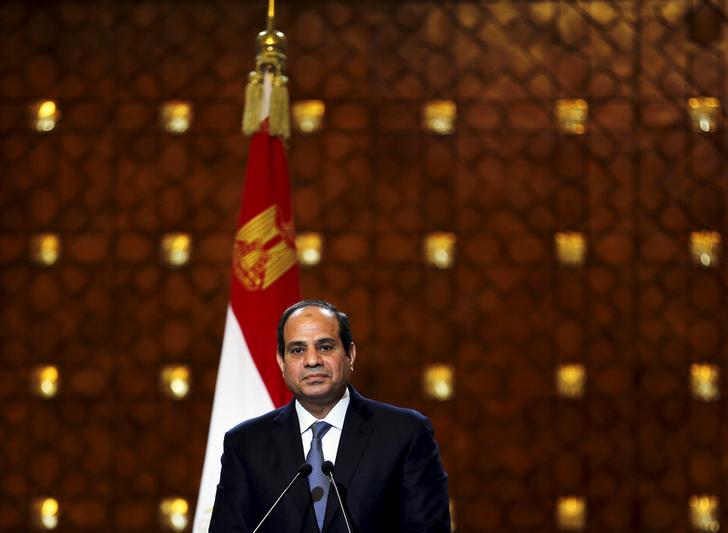
On June 27, 2018 The World Bank announced a US$530 million project to support Egypt’s national goal of improving public healthcare, including the expanding of family planning services, scaling up its groundbreaking Hepatitis C program and support for the new Universal Health Insurance System. The new project aims to improve services at 600 primary healthcare facilities and 27 hospitals, to support Egypt’s family planning efforts through a US$35 million intervention, to scale up the community health workers program to promote better health and nutrition, to screen 1 million units of blood annually, and to expand the screening of Hepatitis C for around 35 million people with the treatment of an estimated 1.5 million patients. The project will also screen 20 million adult Egyptians against non-communicable diseases and major risk factors.
The five-year project was originally implemented by the Ministry of Health and Population and will be an integral component of Egypt’s ambitious health reforms. The recent enactment of the Comprehensive Health Insurance law means the demand for quality healthcare is expected to grow. The current project is designed to meet that demand into the future. Egypt’s Hepatitis C program has become exemplary, for developing countries by ensuring that the poorest segments of the population have access to cutting-edge treatments at affordable costs. Costs are expected to be further lowered through the success of the project.
‘’The Project is in line with President Sisi’s grand vision which aims at investing in the Egyptian people. We welcome the World Bank’s support to the implementation of our ambitious homegrown health sector reform program to enhance our people’s living standards,’’ said Dr. Sahar Nasr, Egypt’s Minister of Investment and International Cooperation, who also represents Egypt on the World Bank’s Board of Governors.
Minister of Investment & International Cooperation, Sahar Nasr
‘’Health is a top priority for the government’’ said Dr. Hala Zaid, Minister of Health and Population. ‘’This project aims to tackle Egypt’s top health agenda priorities: eliminating Hepatitis C, strengthening community, primary, and secondary healthcare services and addressing public health concerns including blood safety, family planning and non-communicable diseases. Accordingly, the project will allow us to achieve our goal of ensuring that every Egyptian has access to the quality healthcare that will enable them to lead prosperous lives and contribute to Egypt’s development.’’
Dr. Hala Zaid, Minister of Health and Population.
‘’This project is about investing in people’’ said Dr. Asad Alam, World Bank Country Director for Egypt, Yemen and Djibouti. ‘’Improving Egypt’s health care system will strengthen the country’s human capital and further build the foundation for growth and prosperity.’’
The World Bank finances programs and projects to help Egypt reduce poverty and boost shared prosperity. The focus of Bank support includes social safety nets, energy, transport, rural water and sanitation, social housing, health care, education, job creation, and financing for micro and small enterprises. The World Bank currently has a portfolio of 16 projects with a total commitment of US$6.69 billion.
Dr. Asad Alam, World Bank Country Director for Egypt, Yemen and Djibouti; signatory to the Project Agreement.
The proposed Project Development Objective:
(i) improve the quality of primary and secondary health care services.
(ii) enhance demand for health and family planning services.
(iii) support the prevention and control of Hepatitis C.
The project aims to strengthen Primary Healthcare, Family Planning and Community Activities: (Costing US$247.40M), Strengthen Secondary Level Healthcare: (Costing US$274.60M), Implement Institutional Capacity Building and Project Management: (Costing US$8.00M) and to improve Contingency Emergency and Response.
The second ISR (Implementation Status & Results Report) for the Project was released in March 2019. The project’s implementation was approved by the Board on June 27, 2018, with the Loan Agreement being signed on July 10, 2018. The project was first declared effective on September 7, 2018, well ahead of the envisioned Effectiveness date at project design.
Project Ratings:
The project is making good progress already. Overall, Implementation Progress and progress towards achievement of the Project Development Objective are rated as ‘Satisfactory’, and the Disbursement rate is well ‘ahead of schedule’ at 23%. Implementation progress for all components is ‘well advanced’, with a rating of ‘Satisfactory’ across all components. A functioning Project Management Unit is in place, including an approved ‘Project Operations Manual’ and ‘Grievance Redress Mechanism’. In addition, the schedule for Authorised Public Disclosure is proceeding according to agreed timelines.
According to “The World Bank Implementation Status & Results Report: Transforming Egypt’s Healthcare System Project” (P167000, 3/27/2019; Page 2 of 7), screening of Hepatitis C and Non-Communicable Diseases is expected to be completed in the first year. This is two years earlier than the planned schedule. The technical Independent Verification Agency of DLIs required under the project has already been contracted.









Great post. I was checking constantly this blog and I am impressed! Extremely helpful info specially the ultimate phase I maintain such info a lot. I used to be seeking this particular information for a very lengthy time. Thank you and good luck.
I maintain such info a lot. I used to be seeking this particular information for a very lengthy time. Thank you and good luck.
Comments are closed.